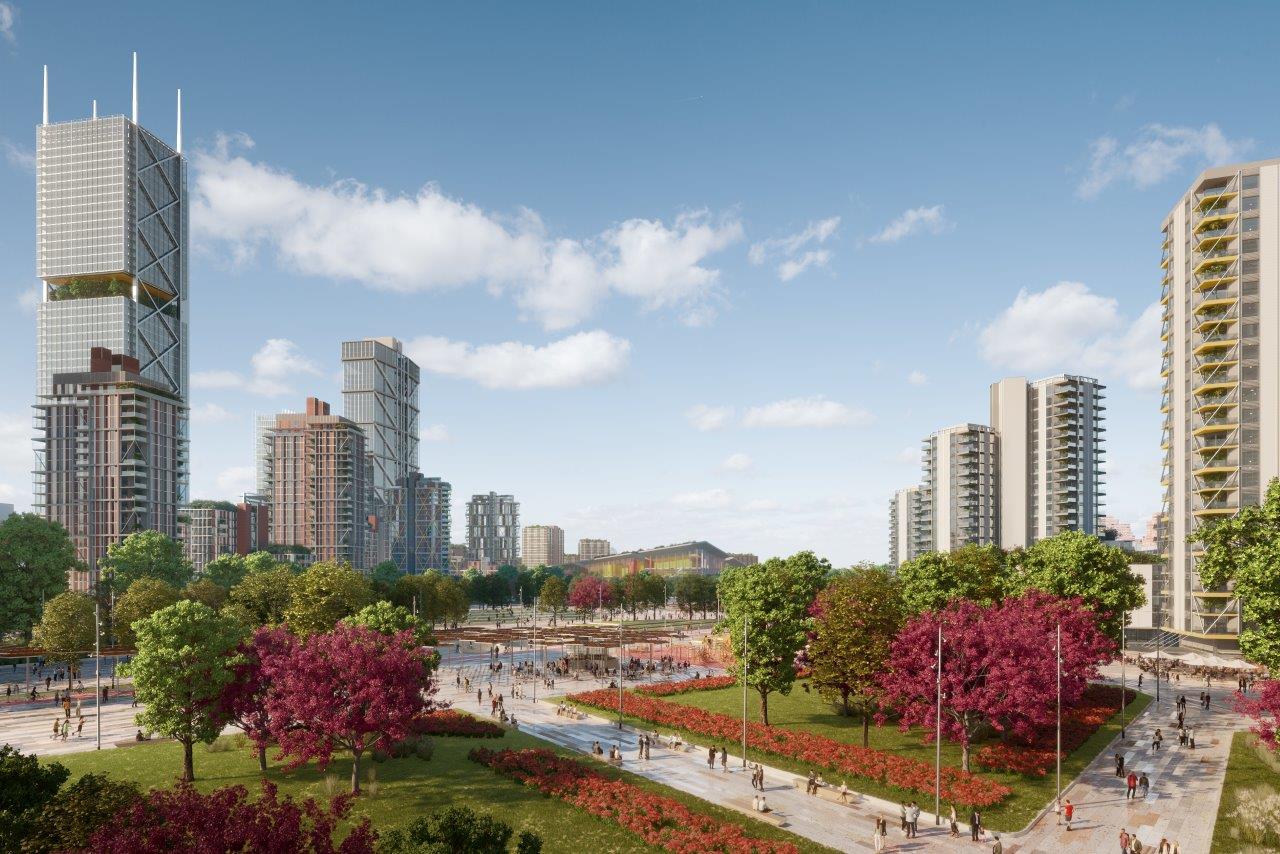Madrid’s latest park is aiming to reduce city temperatures by 4 degrees
‘The entire park will be an urban forest that will function as an air conditioning condenser, creating a microclimate that will disperse to the streets,’ says designer

Your support helps us to tell the story
This election is still a dead heat, according to most polls. In a fight with such wafer-thin margins, we need reporters on the ground talking to the people Trump and Harris are courting. Your support allows us to keep sending journalists to the story.
The Independent is trusted by 27 million Americans from across the entire political spectrum every month. Unlike many other quality news outlets, we choose not to lock you out of our reporting and analysis with paywalls. But quality journalism must still be paid for.
Help us keep bring these critical stories to light. Your support makes all the difference.
Amid record temperatures hitting Spain each summer, its capital is planning a new urban park that will lower city temperatures by 4 degrees Celsius.
The Madrid Nuevo Norte project this week unveiled its chosen designers - West 8 and Porras Guadiana Arquitectos - for the green space, which is planned for completion in 2025.
The designers say the layout of the park will draw on ancient Middle Eastern techniques of arranging towers and landscaping gardens to catch and distribute the breeze - creating an urban “air conditioning” effect.
“This cold air comes down and refreshes the inside of the wind garden,” Juan Tur of Dutch architecture studio West 8, one of the design studios selected from 40 applicants, told The Times.
“The entire park will be an urban forest that will function as an air conditioning condenser, creating a microclimate that will disperse to the streets next to the park,” added Fernando Porras, of Porras Guadiana Arquitectos.
One feature of the new green space will be a spiral-shaped structure designed to catch the breeze and disperse it around the city.
Studies have shown that this “wind garden” design, when paired with rows of trees and urban irrigation systems, can reduce the temperature of its surroundings by up to 4C.
Mr Tur told reporters that the design of the “urban forest” could make walking around Madrid’s city centre a pleasant experience even in the middle of August, when temperatures routinely soar into the mid-30s.
Madrid has seen August temperatures exceeding 40C in recent summers amid climate change, with Spain overall recording its hottest ever temperature - 47.4C - last August in Montoro, near Cordoba in the south.
The same month, wildfires erupted across the central areas of Ávila, Castile and León, and Azuébar, Valencia, causing hundreds of residents to be evacuated from their homes.
Last summer, an anticyclone named ‘Lucifer’ swept across Europe, causing record temperatures in Turkey, Italy, Greece and Spain.
Meteorologist Chris Almond said at the time: “With climate change, we are expecting, and are already seeing, more frequent and severe events, and will continue to do so in the future.”
Join our commenting forum
Join thought-provoking conversations, follow other Independent readers and see their replies
Comments